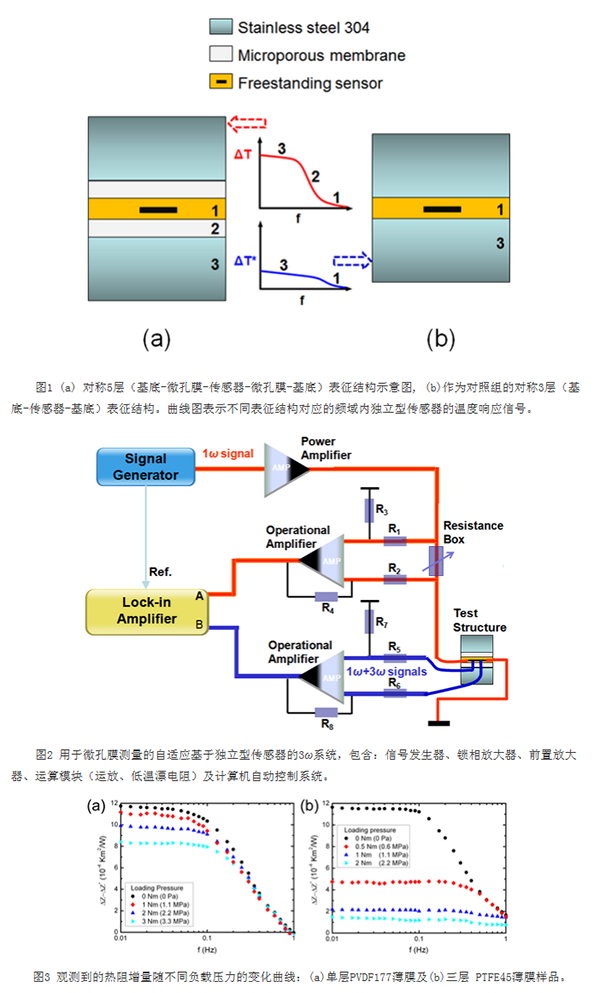
In the field of membrane distillation, the thermal conductivity of the microporous membrane directly determines the thermal efficiency of the membrane distillation process. Therefore, its accurate measurement has been a research hotspot. However, the thickness of such microporous membranes is often less than 100 micrometers. At this scale, the conventional thermophysical properties characterization technology is no longer applicable, resulting in difficulties in the characterization of thermal conductivity experiments. The experimental technique for accurate characterization of microporous membrane thermal conductivity is very rare. Most membrane distillation materials scientists can only rely on simple thermal conductivity calculation formulas for porous materials (such as series models, parallel models, and series-parallel hybrid models) to estimate commercial microporous membranes. The equivalent thermal conductivity value. Therefore, the development of thermal conductivity measurement techniques suitable for tens of micron thick microporous membranes has become increasingly urgent.
Recently, researchers from the Research Center for Heat and Mass Transfer at the Institute of Engineering Thermophysics, Chinese Academy of Sciences conducted in-depth studies on this problem of measurement of microscopic thermal properties. The researchers proposed an adaptive 3ω technique based on an independent sensor (Fig. 1 and Fig. 2), by testing five symmetrical structures (substrate-microporous membrane-sensor-microporous membrane-substrate) and as a control group. The temperature-responsive signal (Fig. 1) of the independent sensor with 3-layer symmetry structure (base-sensor-substrate), combined with the proposed mathematical model, can effectively obtain the effective thermal conductivity of tens of micron thick microporous film.
Studies have shown that this technology is applicable to three typical commercial membrane distillation microporous membranes: heat of polytetrafluoroethylene (PTFE, 45 μm thick), polypropylene (PP, 44 μm thick) and polyvinylidene fluoride (PVDF, 177 μm thick) The conductivity measurements agree well with the reference results. The study further quantified the influence of the external load of the test structure (Fig. 3), the thickness of the microporous film, and the interface thermal resistance on the measurement accuracy, and gave the best experimental conditions to ensure the measurement accuracy. The highly adaptive solution proposed by this work provides one of the most promising candidate technologies for the characterization of the thermophysical properties of microporous membranes in various membrane distillation applications.
The above work was supported by the National Natural Science Foundation of China (51336009). The research results have been published in the International Journal of Thermal Sciences, 2015, 89(3): 185-192.
Hot Air Gun,Industrial Hot Air Heat Gun,Heat Shrink Gun,Electric Heat Gun
Ebic Tools Limited , http://www.ebictools.com